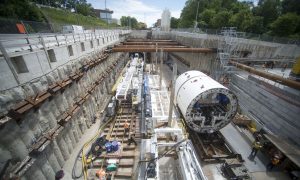The exportation of produce and importation of agricultural related goods has been significantly affected by the recent severe weather conditions in in KwaZulu-Natal, causing major infrastructural damage that is likely to have long term ramifications for the agricultural sector, says the KZN Agricultural Union (Kwanalu).
“We are aware of reports from the midlands and coastal regions (north and south) which seem to be the worst affected, however reports continue to come in. With the severe devastation of the infrastructure, and in particular roads and bridges around the port, the passage of goods and services is highly restricted. Access to relevant drop off and collection points for agricultural products and supplies which are time sensitive will impact directly on the sector,” said Kwanalu CEO, Sandy La Marque.
Kwanalu, Agri SA as well as other provincial unions recently expressed concern over the poor road conditions in rural areas of the country and the significant impact it has on food security, the agricultural sector and economic growth.
“Without good infrastructure and basic service delivery the impact will continue to be severe, stifling growth, employment, investment, and export opportunities. This most recent disaster which has befallen KZN continues to demonstrate how fragile the agricultural sector is, and the importance of preventative measures, maintenance, economic nodes, and corridors being identified and being prioritised. These economic corridors are found throughout the province when it comes to agricultural production and food security”, said La Marque.
The urgency for action in making KZN’s infrastructural repairs and maintenance a priority has become even more pertinent to the agricultural sector.
“It is critical that a high level, multi-stakeholder processes are undertaken to ensure that food security, employment, and goods and services will be able to flow across the province, Kwanalu will be at the forefront of these issues and will look at solutions from local to national levels, the requirement of government and municipalities in any solutions is critical” says La Marque.




















